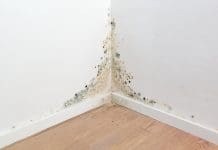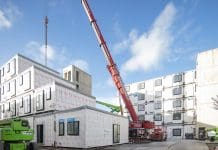Can you predict the future? The importance of fire detection and alarms, and associated qualifications referring to fire safety is discussed by the Fire Industry Association
What is the future for those working in the fire detection and alarm sector?
Whilst staring into a crystal ball probably won’t help, we can analyse the facts and look at the reasons why there is a growing trend towards both the need for professional qualifications in this sector and also a need to upskill and grow the market through providing quality services.
The problem is that in the UK there is currently no legal requirement for a formal qualification in the fire detection profession.
Technically speaking, there is nothing to stop anyone, however unqualified, from commissioning a sprinkler system or installing a fire alarm. And to make matters worse, that applies whether the unqualified individual is installing or designing a system for a small office, a hospital, or even a huge nuclear power station, where the risks could be exponential if not handled properly.
The only necessity at present is written into the Regulatory Reform (Fire Safety) Order 2005, which states that the individual must be “competent” – but there is nothing currently within the law to specify exactly what a ‘competent’ person should be, or what qualifications they should have. As such, we are left in a strange predicament whereby there is no minimum education requirement specified, and no formal guidelines on what “competent” means in each area of the fire detection profession, particularly in the services sector, yet a huge pressure to prove our competency.
But how? Up to now, most companies have relied on the use of Third Party Certification to help prove their competency, which is part of the criteria to become a member of the Fire Industry Association. Each scheme is different, but essentially each one provides an independent audit of a company to help prove quality and competency. These schemes are generally very good and the audits strong, which is why the Fire Industry Association has always supported them. However, third-party certification schemes exist for companies and there needs to be another way for individual technicians to help prove their own expertise – and this is where a qualification in fire detection and alarm systems would be hugely beneficial.
A qualification would provide an extra layer of knowledge and expertise. Not only would it help to bolster an individual technician’s credentials, it would also give companies a competitive advantage, especially if they can show that all of their technicians are qualified.
Purchasing decision
Consumers and purchasers these days are getting more and more savvy, often placing more effort into finding out what sort of service they will receive – and at what price. And whilst price alone might lead some purchasing decisions, that is not always the case, and many purchasers will often look to find out if they are getting a good level of service for their money.
If you buy a washing machine or a car, it is easy to find reviews to get a better understanding of the pros and cons of that product. But when you purchase services, you do not have much indication of how good the service is or how competent the person doing the installation or maintenance work is until the work is done. And by that point, it could well be too late.
As a result, purchasers will often seek reviews or ask for recommendations from people they know. However, if those aren’t an option, they might look for a recommendation scheme (such as Third Party Certification) and the reassurance that brings. Alternatively, part of that reassurance might be that the technicians that will visit them have a good working knowledge and understanding of what they’re doing. It is this sort of purchaser that may be swayed by the extra layer of assurance that qualified staff may bring.
Services standard
This is where the services standard EN 16763: 2017 Services for fire safety systems and security systems is useful. Although it is not mandatory, it helps to set out minimum education requirements for staff in the industry.
EN 16763 clearly defines the level of education those working in the fire and security services industries should have. Those working within fire detection and alarm services should hold a Level 3 qualification on the European Qualifications Framework, according to the new standard.
To help companies prepare to adopt this standard, and to further improve the level of training available to service technicians, the Fire Industry Association (FIA) has worked to develop four new qualifications in fire detection and alarm, aimed at the four main job roles within the fire detection and alarm services sector. These are:
• designer
• installer
• maintainer
• commissioner
These new qualifications are one stage higher than those mentioned in the European Qualifications Framework (a Level 4, as opposed to the Level 3 specified), and are equivalent to an A-Level within the UK.
The FIA has a memorandum of association whose second objective is education and training. The FIA is a not-for-profit organisation so any money made either goes back into training and development, or research.
Consequently, the FIA is well placed to offer training that can help to prove competence. It has been running fire detection and alarm training since its formation in 2007 and has trained more than 30,000 delegates across its 17 different courses. Current run rates are 300 courses across the year around the country, training about 4,000 delegates per year. FIA training is becoming a widespread requirement in detection and alarm recruitment.
Awarding organisation
This year, the FIA is proud to have become an approved awarding organisation which means it can write qualifications that are approved by OFQUAL and other official government bodies for examinations.
The FIA spent years researching and creating the qualifications, talking to members and training customers to find out what they wanted from a qualification. We then tested what we learned from surveys, and the results helped us design and create our qualifications.
The four new qualifications in fire detection and alarm are currently being developed by the FIA to enhance learner’s knowledge even further than before.
The FIA’s current training provision will eventually be phased out for the new qualifications, since these will contain new areas and topics not previously seen within the provision currently given.
For each of the four qualifications (one each for fire detection and alarm design, install, maintain, and commissioning) there are four units to study. Three units are common to each of the qualifications. These are: Foundation, Health & Safety, and Environment. Learners must pass each stage in order to progress to the next unit, and then learners can choose a specialist advanced unit in their chosen area, whether that be design, install, maintain, or commissioning.
In the Foundation unit, the learner develops their knowledge and understanding of fire safety legislation (which is different depending on whether you’re in England, Scotland, Wales, or Northern Ireland), as well as relevant standards, best practice, and theory that underpins all of the advanced principles in the later specialist advanced units.
The standard for the qualifications is incredibly high – experts from across the industry have collaborated to create the course content and write the exams.
Format of the qualifications
There will not be an exam-only option for those who think that they already have enough knowledge to pass. This is because the qualification is comprehensive, and the questions will be complex, so we think people need to do the course to have learned enough to pass the exams at the end of each unit. These are likely to be demanding and extensive – so learners will need to put in the hours of learning. We estimate that the average time for an exam will be two and half hours.
This is not a simple exercise; it is a test of a learner’s knowledge. We think it will be the vital step that raises the level of professionalism in fire detection, and makes those working in the field expert professionals, which should improve the industry for everyone.
What will the future bring? We don’t know for certain, but it looks like there will be a trend moving towards higher levels of professionalism in the industry. Our crystal ball says: qualifications are the new black.
To find out when the new booking system goes live, and be the first to get on to a qualification pathway, sign up to the FIA’s email newsletter.





![[Video] Enhancing safety with fire doors: A case study of Marina Care Home](https://www.pbctoday.co.uk/news/wp-content/uploads/2025/06/maxresdefault-218x150.jpg)



![[VIDEO] Making DorTrak reports easy to read with Fireco Inspecting fire doors at Fireco, firedoor technology, 2023](https://www.pbctoday.co.uk/news/wp-content/uploads/2024/04/JPZ_2364-web-218x150.jpg)



